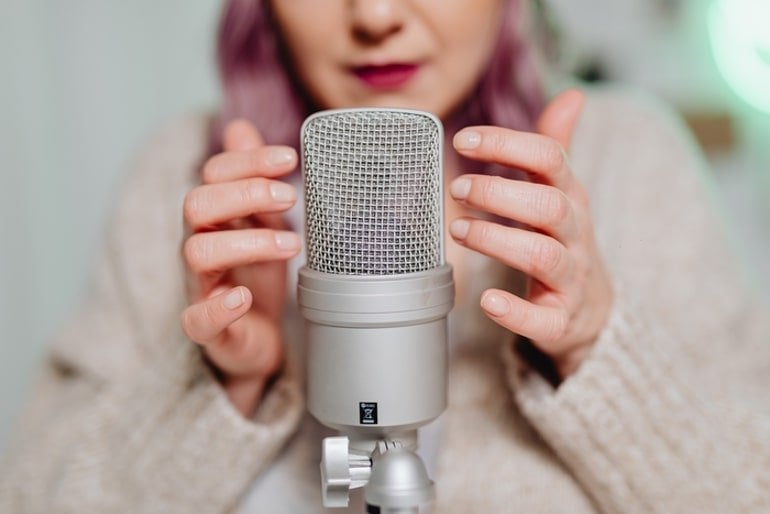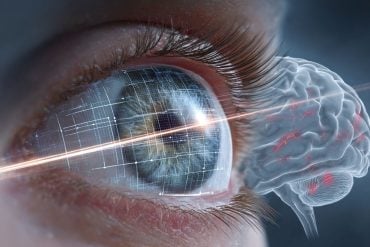Summary: ASMR could serve as an intervention for those with elevated levels of neuroticism and anxiety, a new study finds.
Source: PLOS
A study has uncovered new evidence linking higher levels of neuroticism and anxiety with the ability to experience a deeply relaxing sensation known as the Autonomous Sensory Meridian Response (ASMR).
Charlotte Eid and colleagues at Northumbria University, U.K., present these findings in the open-access journal PLOS ONE on February 2, 2022.
During ASMR, a person experiences a tingling sensation beginning in the head and neck that may spread throughout the body. Not everyone experiences ASMR, and those who do have different triggers for it; for instance, receiving a massage or listening to quiet sounds, such as whispering. Recent years have seen the creation of numerous online videos featuring sounds and situations that may trigger ASMR, and many viewers report relaxing benefits.
Previous research has suggested that people capable of experiencing ASMR may have elevated levels of neuroticism. However, the precise link between ASMR and personality traits has been unclear.
To help clarify, Eid and colleagues asked 36 volunteers who experience ASMR and 28 non-experiencers to watch a video meant to trigger ASMR. The participants completed several questionnaires to evaluate their neuroticism, general tendency to experience anxiety (“trait anxiety”), and moment-to-moment anxiety (“state anxiety”) before and after watching the video.
Statistical analysis of the participants’ responses found that ASMR experiencers had higher levels of neuroticism and trait anxiety, as well as higher levels of state anxiety before watching the video—however, this type of anxiety was reduced after the video, and ASMR experiencers reported a greater level of benefit from the video. In contrast, non-experiencers did not undergo a reduction in state anxiety after the video.

Further analysis suggested that the differences in neuroticism and anxiety between ASMR experiencers and non-experiencers statistically accounted for the observed difference in the pre- and post-video change in anxiety, highlighting the potential importance of these personality traits.
Overall, these findings suggest that ASMR experiencers may be characterized by greater levels of neuroticism as well as anxiety disorders than non-experiencers. They also suggest that ASMR could serve as an intervention for individuals with elevated levels of neuroticism and/or anxiety in general. However, the authors note, further research is needed to address the limitations of this study and enhance understanding.
The authors add: “Our study found that watching an ASMR video reduced anxiety in those who experience ASMR tingles even when previously not familiar with the phenomenon. Personality characteristics which are linked with high anxiety were also associated with these benefits, therefore ASMR may be a suitable psychological intervention for anxious individuals in general.”
About this ASMR and anxiety research news
Author: Hanna Abdallah
Source: PLOS
Contact: Hanna Abdallah – PLOS
Image: The image is credited to Karolina Grabowska
Original Research: Open access.
“Untangling the tingle: Investigating the association between the Autonomous Sensory Meridian Response (ASMR), neuroticism, and trait & state anxiety” by Joanna Greer, Charlotte Eid et al. PLOS One
Abstract
Untangling the tingle: Investigating the association between the Autonomous Sensory Meridian Response (ASMR), neuroticism, and trait & state anxiety
The Autonomous Sensory Meridian Response (ASMR) is an intensely pleasant tingling sensation originating in the scalp and neck and is elicited by a range of online video-induced triggers. Many individuals now regularly watch ASMR videos to relax, and alleviate symptoms of stress and insomnia, all which are indicative of elevated levels of anxiety.
Emerging literature suggests that ASMR-capable individuals are characterised by high trait neuroticism, which is associated with a tendency to experience negative emotional states such as anxiety. To date however no literature has empirically linked these personality constructs and watching ASMR videos on the effect of reducing anxiety.
In the current study, 36 ASMR-experiencers and 28 non-experiencers watched an ASMR video, and completed assessments of neuroticism, trait anxiety, and pre- / post-video state anxiety. MANCOVA with Group as the independent measures factor showed that ASMR-experiencers had significantly greater scores for neuroticism, trait anxiety, and video engagement than non-experiencers.
Pre-video state anxiety was also significantly greater in the ASMR-experiencers and was significantly attenuated on exposure to the ASMR video, whereas non-experiencers reported no difference in state anxiety pre- and post-video. Thus, watching ASMR alleviated state anxiety but only in those who experienced ASMR. Subsequent mediation analyses identified the importance of pre-existing group differences in neuroticism, trait and (pre-video) state anxiety in accounting for the group difference in the reduction of state anxiety.
The mediation analysis further lends support for watching ASMR videos as an intervention for the reduction of acute state anxiety. Future areas for research are discussed.







